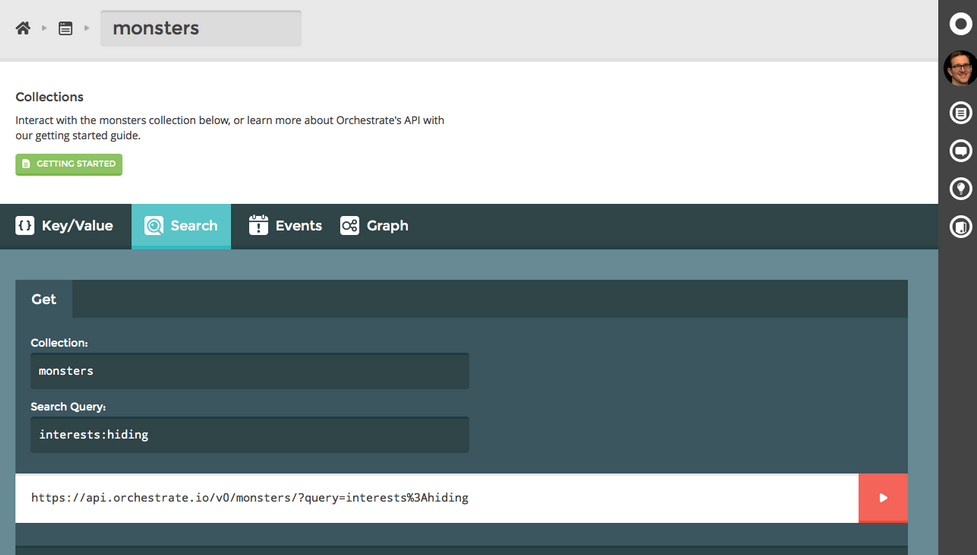The days when developers built their applications on a single database are long over. Many services today use a variety of databases – and especially NoSQL databases – to power the different aspects of their applications. That adds a lot of complexity, points of failure and cost. At the same time, developers are also getting accustomed to the Amazon Web Services (AWS) model, where you can easily go from 1,000 queries per second to 10,000 without hitting the limits of what your local on-premise database could handle.
Orchestrate, which is launching out of beta today after raising a $3 million seed round last year, aims to make all of this complexity a thing of the past. It offers developers a single REST API for working with their data. The company takes your data, uses the most appropriate NoSQL database like MongoDB or CouchDB for it and you just access it through the Orchestrate API.
Right now, the company’s co-founder and CEO Antony Falco told me, most of the Orchestrate infrastructure runs on AWS. Over time, though, the plan is to use multiple clouds and offer support for data centers in Europe and Asia as well. This, Falco noted, will allow a company to maybe host its data on Amazon on the East Coast and Softlayer in Europe, and to replicate data between different clouds as needed. Orchestrate is also looking at allowing developers who have special security concerns to run its service on-premise.
Falco said there are still a few features the company wants to add post-launch, including support for old-school SQL databases and geo-spatial data. Everybody tends to have a different definition of what geo-data actually means, he stressed, so the plan is to see what customers will ask for and then build a product that fits its users’ needs.
Falco previously co-founded and was the COO of Basho, the company behind the very successful Riak NoSQL database and cloud-storage service. Orchestrate currently has 12 employees. Most work out of its headquarters in Portland, Ore., but the company also has a fair share of remote employees.
Orchestrate’s pricing, too, aims for simplicity. The company offers a free tier for developers who need fewer than 1 million query operations per month. Paid tiers for users who need more start at $39 per month and offer 10 million operations and an additional $2 for every 1 million operations above that limit. Orchestrate does not charge for storage. All of these tiers include monitoring, support, usage reports and daily backups to a location of the customer’s choosing (say S3, for example). By having these backups in place, there is virtually no lock-in, as all the data is stored as JSON objects.
